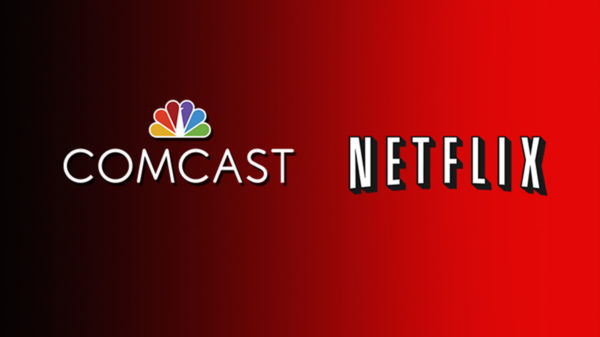
The Los Gatos, Calif., streaming video service on Monday warned that the proposed $45.2 billion merger of Comcast and Time Warner Cable would create a worrisome concentration of broadband control, opposition that makes Netflix the first major company to publicly speak out against the combination.
“I don’t know that we want anybody to control half of the U.S. Internet, and that’s the real basis of our objection to the merger,” Netflix CEO Reed Hastings said during a webcast to discuss results.
Hastings’ comments come just months after Netflix reached a deal with Comcast to improve Netflix’s quality of service for Comcast customers by ensuring a speedy delivery of its video service through the interconnection portion of the Internet, or the pipes owned by the cable giant. Comcast, for its part, claimed the move was more about Netflix’s bottom line than consumer rights.
Though Netflix states its opposition to the deal in the same breath that it discusses a consumer-protection concept like equal access to Internet content and sites — a concept known as Net Neutrality — Netflix’s own financial interests in opposing the Comcast/TWC merger are significant — and they aren’t explained in the fullest detail by the company itself. Unlike some of its traditional TV brethren, at this point Netflix doesn’t have much to lose by raising Comcast’s hackles. And the merger opposition has next to nothing to do with a Netflix price hike it teased Monday.
Though the merger between the No. 1 and No. 2 cable operators has sparked vocal opposition from consumer advocates and a faction of consumers themselves, few companies — and no major ones — have spoken out against it. At a Senate Judiciary Committee hearing, for example, the only companies to testify, besides Comcast and Time Warner itself, were an independent cable golf channel and a small Connecticut Wi-Fi provider.
Absent were the likes of Viacom, Disney or 21st Century Fox. Despite standing to gain from the collapse of a merger, they haven’t budged. Unlike Netflix, they still have something to lose by getting on the behemoth’s bad side, and no big television companies are breaking cover to protest the combination.
The relationship between a cable operator like Comcast and media companies like Netflix or Disney is mutually beneficial, even if the companies are often at odds over price. Neither side can really thrive without the other: Comcast needs the most popular content — be it Disney’s ESPN or Netflix’s subscription streaming video — for its video and broadband services to appeal to consumers, and Disney and ESPN need Comcast to reach a vast number of U.S. homes.
But Netflix isn’t your typical television company. It’s the first and biggest Internet TV network. Its opposition to the Comcast/Time Warner Cable merger is related to the companies’ broadband services, not their cable video business.
The combination of Comcast and TWC would mean the company is passing through 60 percent of U.S. broadband households, Netflix said Monday, something Hastings called worrisome.
“We think it’s more in the public interest to either not have them merge, or if the government goes ahead with it, to at least put some significant merger agreements, settlements in there,” he said.
Read the full story at: cnet.com


